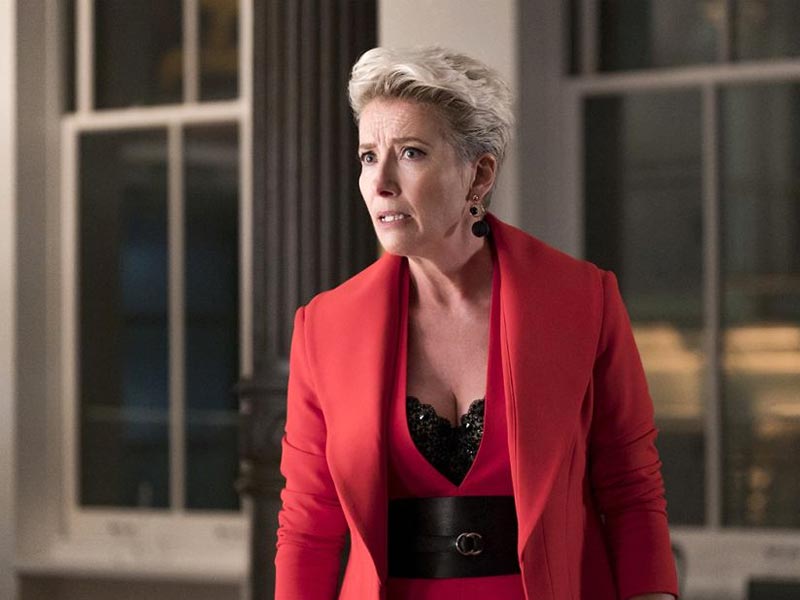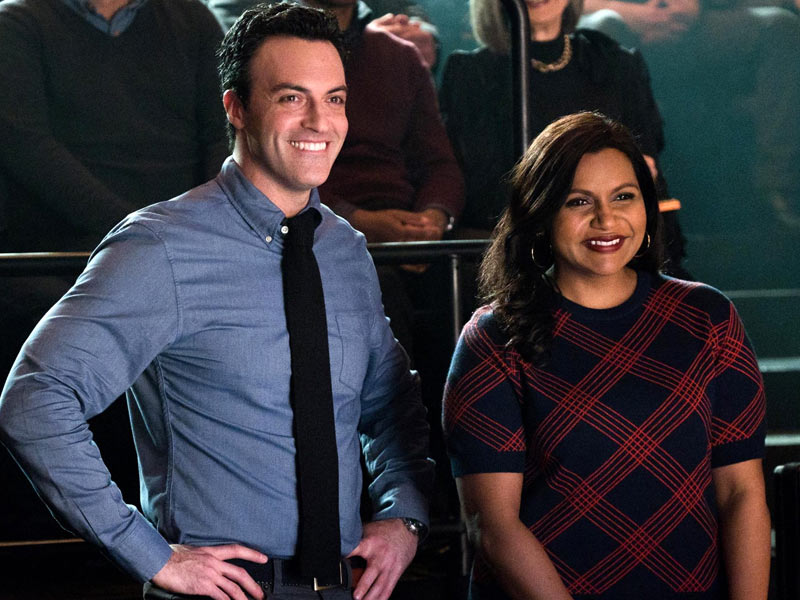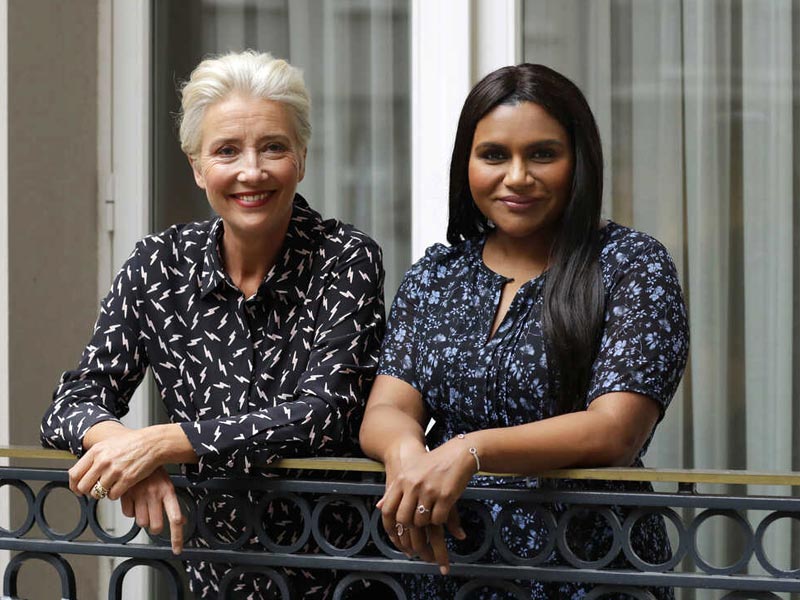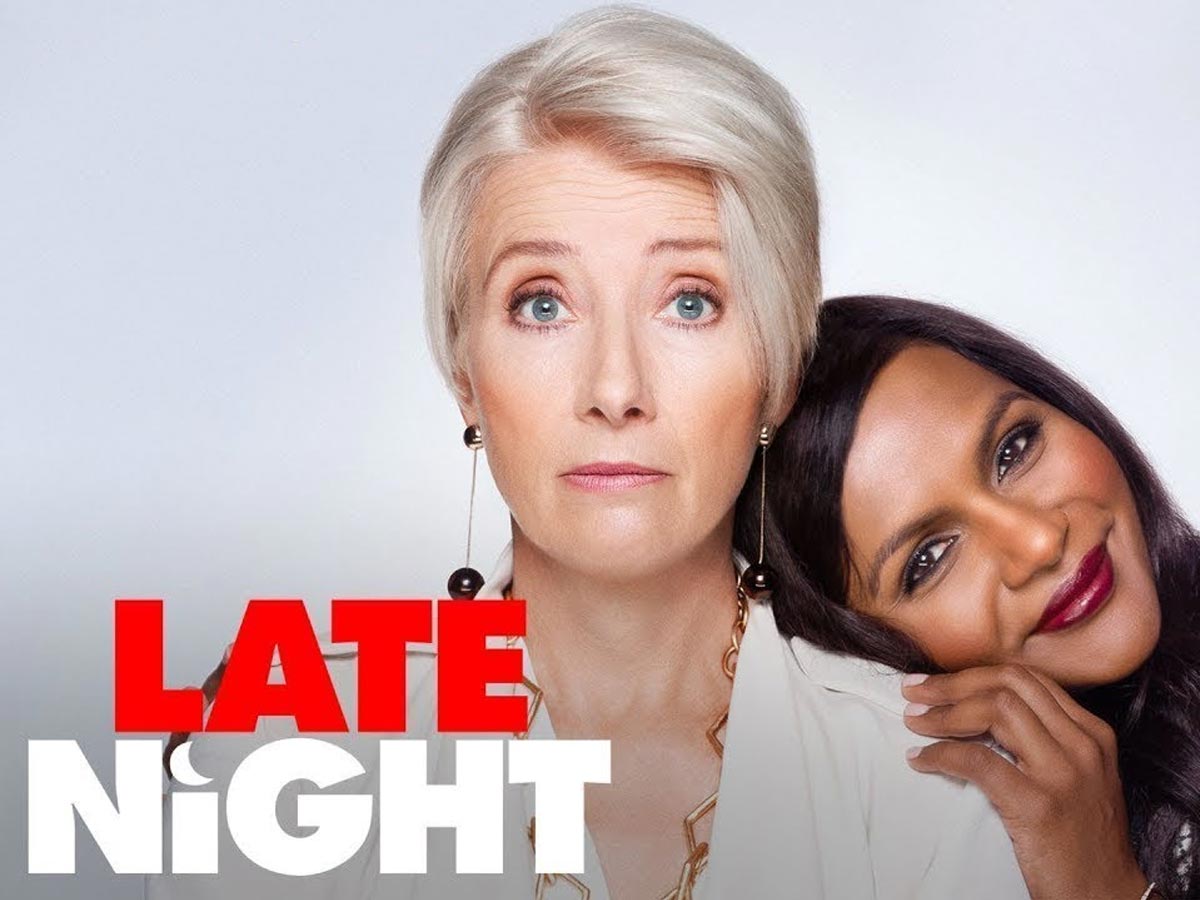Late Night is a scathing sarcastic comedy that transforms into an unexpected tearjerker. It’s caustic and uplifting at times, and it’s often extremely amusing. Its writer/producer/star Mindy Kaling offers scathing judgments on the mainstream US media’s inanity, selfishness, and corruption while also celebrating the professionalism of many of those who work inside it.

Emma Thompson gives a magnificent performance, while Kaling gives a very sly one. Thompson is at her most commanding as Katherine Newbury, a great entertainer who is the lone woman in a male-dominated business, but whose career is on the decline.
Katherine is a perplexing character. Despite her career of cracking jokes and interviewing other celebrities, she describes herself as “not a people person.” She is an English woman in America who is poor at small chat and treats both her employees and her bosses with equal disdain. She’s starting to look like a dinosaur in the age of social media. Thompson brilliantly conveys her character’s weird mix of confidence and vulnerability. She also delivers the several caustic one-liners with zest and comedic timing.
Molly Patel, played by Kaling, is a quality controller in a chemical laboratory in deepest Pennsylvania. She admires Katherine and wishes she could work for her. The Asian-American gets a job thanks to a combination of incredible luck, her own ingenuity, and the TV station’s need for more diverse personnel. “She is not a production assistant, dipshits, she is the new writer!” exclaims the producer to the other authors, who instantly think Molly has been recruited as their dogbody.
Watching Emma Thompson and Mindy Kaling mix it up on Late Night will make you believe you’ve died and gone to hilarious paradise. In Kaling’s woke writing, the Oscar-winning British actress for Howards End plays Katherine Newbury, a late night talk show host who takes desperate measures to arrest her ratings decline. She employs Molly Patel (Kaling in a sly variant of her TV image), the first female to break into Katherine’s writing group of white guys. She gives numbers to everyone since she is too bored to remember their names. Charlie (Hugh Dancy), the writer who the married Katherine has been bonking on the side, receives more than just numerical attention.
What we have here is a one-woman tyranny. Thompson and Kaling grew out of that straightforward, often naïve notion. The long-standing lack of a female late night host attests to the story’s relevancy, but the film goes further by demonstrating how Katherine has spent years in the trenches without assisting other women in rising up the ranks. Kaling, who fought to create her own comedy (The Mindy Project), understands the challenges that women and people of colour face in the workplace. She also understands that something must be done to correct the situation.

In essence, Late Night is a spin-off of The Devil Wears Prada, with a female boss who strikes dread into the hearts of her employees. Thompson, like Meryl Streep in that popular workplace comedy, can deliver one-liners with a killer deadpan that takes no prisoners. Denis O’Hare portrays Brad, her frazzled second-in-command, who leaps when Katherine asks him to bring a woman on staff as soon as possible. Molly, an Indian-American chemical-plant efficiency specialist from suburban Pennsylvania with no writing experience, is the diversity recruit he comes up with. As a fan of the programme, Molly had the notion that Katherine can re-ignite her career simply by being herself.
Also Read, Through My Window: Heated Romance becomes Mystical
And who precisely is that? A lady who has committed 28 years to her talk show is warned by network VP Caroline Morton (Amy Ryan) that her days are limited and that she is going to be replaced with a male moron (Ike Barinholtz) whose personality consists entirely of disgusting “bro” clichés. While Katherine conducts “stuffy” interviews with author Doris Kearns Goodwin, Fallon enlists the help of “adorable” Robert Downey Jr. to wash a sheepdog.
It’s late at night when a new enormous wasteland emerges, and the film makes black-comic fun of it. Thompson conveys Katherine’s terror during an interview with a dimwitted YouTube celebrity who enjoys sniffing her dog’s buttocks. The airhead, sensing Katherine’s hatred, refers to her with the worst conceivable adjective in an on-camera profession: “old.”

It was Molly’s idea to use that term in Katherine’s favour. Discuss ageing, menopause, and the dread of being replaced with candour with her audience. Katherine keeps her marriage to Walter (a superb John Lithgow), a retired NYU professor suffering from Parkinson’s disease, very discreet. But when the tabloids incriminate her in a sex scandal and humiliating private emails are revealed, Katherine is left with just two options: accept her fate as ratings poison or fight back.
One educated guess regarding her decision. Late Night’s romance subplots, such as the one featuring Molly and the aforementioned Charlie, are afterthoughts that detract from the show’s energy.

Late Night comes alive as Kaling unleashes her female warriors in the centre ring. The actor-screenwriter is far too astute for rants. But there’s no mistaking the sass in her witty repartee. And when the brilliant Thompson (who deserves another Oscar) begins flinging Kaling’s linguistic grenades like a master, this workplace satire is precisely the sharp fun we need.





























